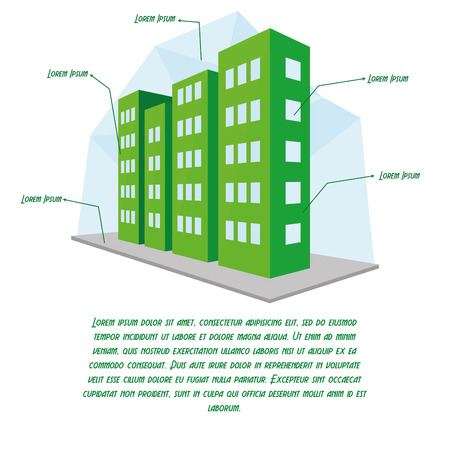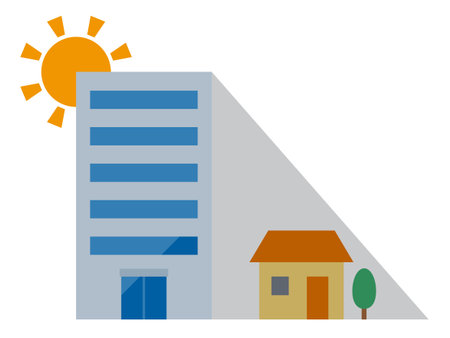Introduction to Vastu and Its Significance in Indian Offices
In the fast-paced world of modern Indian business, entrepreneurs and corporate leaders are increasingly looking towards ancient sciences like Vastu Shastra to enhance the energy flow and financial prosperity of their office spaces. Vastu Shastra, an age-old Indian architectural discipline, is rooted in balancing the five elements—earth, water, fire, air, and space—to align environments with natural cosmic energies. In the context of contemporary Indian offices, adhering to Vastu principles is believed to do much more than just create a visually harmonious environment. It is considered a strategic tool that can attract financial growth, boost employee productivity, and foster a positive atmosphere that leads to long-term prosperity. By optimizing aspects such as the direction and placement of staircases, entrances, and workstations according to Vastu guidelines, many Indian businesses aim to remove obstacles from their path to success and infuse their workplaces with auspicious energies. As a result, understanding Vastu’s influence is not just a matter of tradition but a practical approach for ambitious organizations seeking stability, growth, and holistic workplace harmony.
Ideal Staircase Directions According to Vastu
In the Indian business landscape, following Vastu Shastra principles is believed to bring prosperity, harmony, and positive energy to office spaces. The direction and placement of staircases play a pivotal role in ensuring financial growth and operational success. Here are the most recommended staircase positions and directions as per Vastu guidelines, with a special focus on zones like north-east (Ishan), south-west (Nairutya), and other culturally significant areas.
Recommended Staircase Directions
| Zone/Direction | Vastu Recommendation | Impact on Business Energy |
|---|---|---|
| South-West (Nairutya) | Most auspicious for staircases in offices. Encourages stability and strong leadership. | Promotes financial security and powerful decision-making energy. |
| South or West | Favourable for staircase construction; avoids energy leakage from vital zones. | Retains wealth and supports consistent business growth. |
| North-East (Ishan) | Avoid placing staircases here; this is a sacred energy zone according to Indian tradition. | Staircase here can disrupt prosperity flow and lead to business losses. |
| East or North | If unavoidable, prefer lighter construction and open designs; never place heavy stairs here. | Maintains positive movement but must be handled cautiously. |
Why Direction Matters in Indian Culture
The north-east corner is traditionally considered the seat of divine energies—placing heavy structures like staircases here is seen as blocking blessings and luck. Conversely, south-west positioning channels protective and stabilizing energies, which every Indian entrepreneur values for long-term success. By carefully aligning your office staircase according to these Vastu insights, you actively attract Lakshmi’s grace and safeguard your team’s collective well-being.
Key Takeaways for Office Owners
Always consult a Vastu expert before finalising staircase location. Prioritise south-west, avoid north-east, and ensure your staircase design resonates with both traditional wisdom and modern functionality. Such mindful planning will keep your workspace vibrant with positive vibrations—a hallmark of thriving Indian businesses.

3. Common Vastu Dos and Don’ts for Office Staircases
When it comes to aligning your office building with Vastu Shastra, the staircase plays a pivotal role in channeling positive energy and prosperity. Here are some essential dos and don’ts you must consider to ensure your workplace radiates financial growth and vibrant business energy:
Vastu Don’ts for Office Staircases
Avoid Staircase in the North-East Direction: Placing the staircase in the north-east, also known as Ishan corner, is considered highly inauspicious in Indian Vastu principles. This direction is associated with divine energy, and any heavy structure like a staircase here can block the flow of wealth and hinder overall business growth.
No Central Staircase: Avoid constructing staircases right at the centre (Brahmasthan) of your office premises. The central zone is sacred and should remain open to facilitate optimal energy circulation. A central staircase can stagnate progress and create obstacles in business expansion.
Vastu Dos for Office Staircases
Ideal Directions for Staircase Placement: The best directions for placing staircases in offices are south, west, or south-west corners. These zones support stability, groundedness, and help anchor the financial energies of your company.
Ensure Clockwise Movement: In Indian tradition, ascending stairs in a clockwise direction symbolises positive progression. This simple practice is believed to attract success and harmonious growth within the organisation.
Additional Tips for Positive Energy Flow
- Always keep the staircase well-lit and clutter-free to allow smooth movement of prana (vital life force).
- Use calming colours like off-white or light yellow for staircase walls—avoid red or black shades that may agitate the energy field.
Cultural Insight
Remember, implementing these common Vastu guidelines reflects respect for ancient Indian wisdom and shows commitment towards creating an auspicious work environment. By prioritising these dos and don’ts, you lay a strong foundation for attracting Lakshmi—the goddess of wealth—into your business space.
4. Impact of Staircase Placement on Business Prosperity
Vastu Shastra, a cornerstone of Indian architectural wisdom, emphasizes the significant role that staircase direction plays in the success and energy flow within office buildings. Many Indian business owners and Vastu experts believe that the location and orientation of staircases can directly influence cash flow, employee productivity, and overall business growth.
Staircase Direction: Effects on Key Business Factors
| Staircase Direction | Cash Flow | Employee Productivity | Business Success |
|---|---|---|---|
| South-West (Preferred) | Enhances stability in finances; steady inflow of funds | Promotes focus and discipline among staff | Supports long-term prosperity and reputation |
| North-East (To Be Avoided) | May lead to financial blockages or losses | Can cause confusion or lack of motivation | Might result in stagnation or setbacks |
| South-East | Encourages energetic money movement but may increase expenses if not balanced | Sparks innovation yet may cause restlessness | Boosts short-term gains but needs monitoring for sustainability |
| North-West | Aids in quick financial turnover; suitable for trading businesses | Improves adaptability among employees | Good for dynamic sectors, but may lack consistency |
The Indian Business Perspective on Staircase Vastu
According to Mr. Rajesh Agarwal, a Mumbai-based entrepreneur, “After aligning our staircase as per Vastu guidelines, we noticed smoother operations and a remarkable improvement in our monthly revenues.” Similarly, Vastu consultant Mrs. Shilpa Sharma points out that staircases positioned incorrectly can create ‘energy drains’, leading to frequent cash crunches or high employee turnover.
Practical Considerations for Office Buildings in India
- Avoid spiral staircases at the entrance: These are considered inauspicious as they disrupt the flow of positive energy (Shubh Urja).
- Main staircase should not face the main door: This prevents wealth from ‘flowing out’ of the premises.
- Keeps steps even and well-lit: Uneven or poorly illuminated stairs symbolize instability, impacting both finances and morale.
- Decorate with auspicious symbols: Placing Swastik or Om signs near staircases can enhance their positive influence.
The Bottom Line: Aligning Energy for Growth
The strategic placement of staircases, when guided by traditional Vastu principles and Indian business insights, can be a subtle yet powerful factor in achieving positive energy balance, improved productivity, and sustainable business success within office environments.
5. Remedies for Inauspicious Staircase Directions
Effective Vastu Solutions for Office Staircases
If your office staircase is not aligned with auspicious Vastu directions, there are several practical remedies rooted in Indian traditions that can help neutralise negative energies and restore balance. By implementing these culturally relevant solutions, you can enhance the financial prosperity and overall harmony within your workplace.
1. Use of Vastu Pyramids and Crystals
Placing Vastu pyramids or energised crystals like clear quartz or citrine near the base or top of the staircase can help in harmonising energy flow. These objects act as powerful energy correctors and are widely used in Indian offices to negate Vastu defects.
2. Repainting and Symbolic Colours
If relocation of the staircase is not possible, repainting it with light, uplifting colours such as off-white, cream, or pastel shades is highly recommended. Avoid dark or red shades as they may amplify negative influences according to Vastu Shastra.
3. Placing Auspicious Symbols
Affix sacred symbols such as Swastik, Om, or Shree Yantra at the staircase entrance or along the wall. These symbols are believed to attract positive vibrations and safeguard against financial setbacks caused by Vastu dosha.
4. Metal Wind Chimes and Bells
Hanging metal wind chimes or bells near the staircase helps disperse stagnant energy and introduce a sense of movement and positivity. Opt for five-rod chimes which are considered especially effective in Indian vastu tradition.
5. Lighting Adjustments
Ensure the staircase is always well-lit, preferably with warm yellow lights. Good illumination uplifts the mood and prevents accumulation of negative energy in dimly lit corners—a key consideration in Indian office interiors.
Cultural Tip:
Before implementing any remedy, it is customary in many Indian businesses to perform a simple puja (prayer ritual) to seek blessings from Lord Ganesha—the remover of obstacles—inviting prosperity and success into the workspace.
6. Success Stories: Indian Businesses Benefiting from Vastu-Compliant Staircases
Transforming Fortune: The Case of a Mumbai IT Firm
One of the most remarkable examples comes from an established IT company in Mumbai. Facing frequent project delays and declining team morale, the management consulted a Vastu expert who identified that their main staircase was positioned in the North-East zone—considered inauspicious as per Vastu Shastra. After relocating the staircase to the South-West as advised, the company reported not only smoother workflow but also a significant increase in client acquisitions within six months. Employees noted a noticeable uplift in energy levels and collaboration, contributing to a marked rise in overall productivity.
Enhanced Prosperity for a Textile Business in Surat
A textile wholesaler in Surat struggled with fluctuating sales and operational bottlenecks. On implementing Vastu-compliant changes—especially repositioning the office staircase to avoid the North-East direction—the owner observed steady growth in revenues. According to the business owner, customers became more receptive, and payment cycles shortened. This transformation reinforced their trust in traditional wisdom blended with modern business acumen.
Small Enterprises, Big Results
It’s not just large corporations reaping benefits. A Bengaluru-based startup shifted its internal stairs from the centre to the West, following Vastu recommendations. Within a quarter, the team saw better investor interest and higher employee retention rates. Such stories are echoed across India, where entrepreneurs believe that even small architectural adjustments can attract positive vibrations and unlock new avenues for financial growth.
Community Experiences and Word-of-Mouth Impact
Across cities like Hyderabad, Chennai, and Pune, word-of-mouth testimonials highlight that compliance with Vastu stairway directions leads to fewer workplace disputes and increased harmony among staff members. Many business owners now consult Vastu experts before finalising office layouts, convinced by peer success stories and tangible results seen within their own circles.
These real-life accounts serve as inspiration for Indian businesses looking to harmonize their workspaces with age-old principles. By aligning staircase placement with Vastu guidelines, companies are not just seeking material gains but also cultivating an environment of positivity and well-being—a testament to how tradition and prosperity go hand-in-hand in India’s vibrant business landscape.

